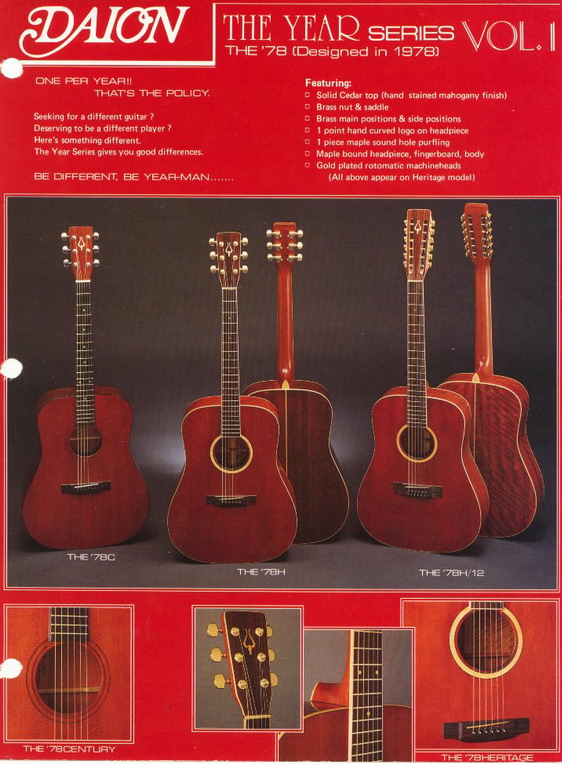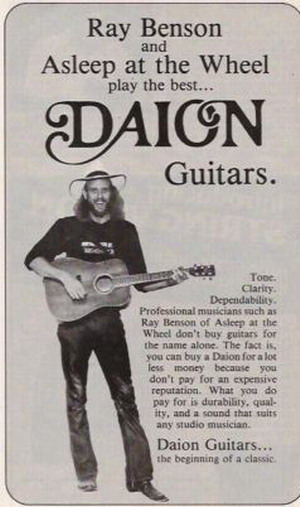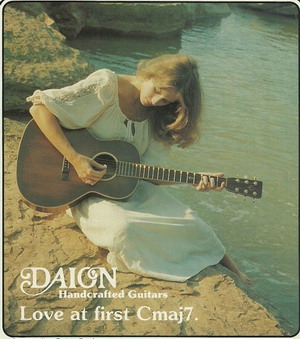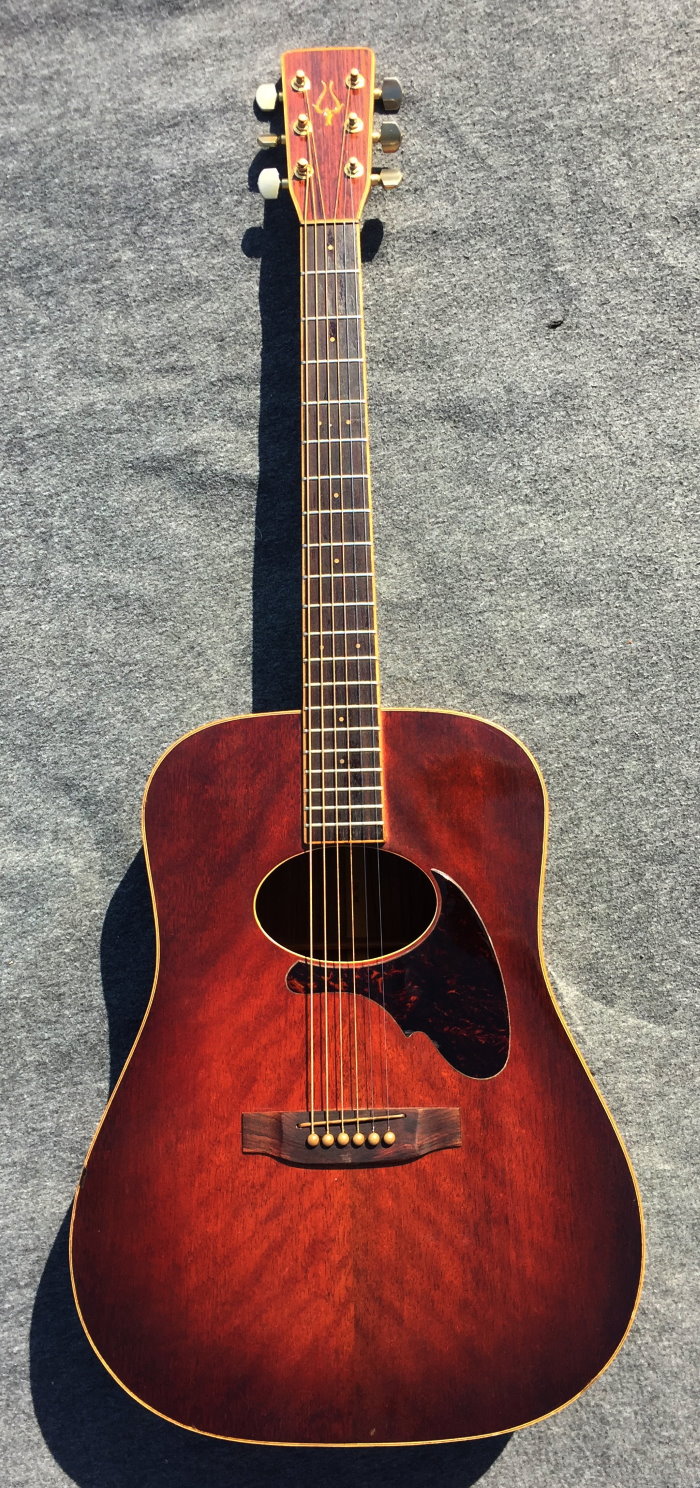

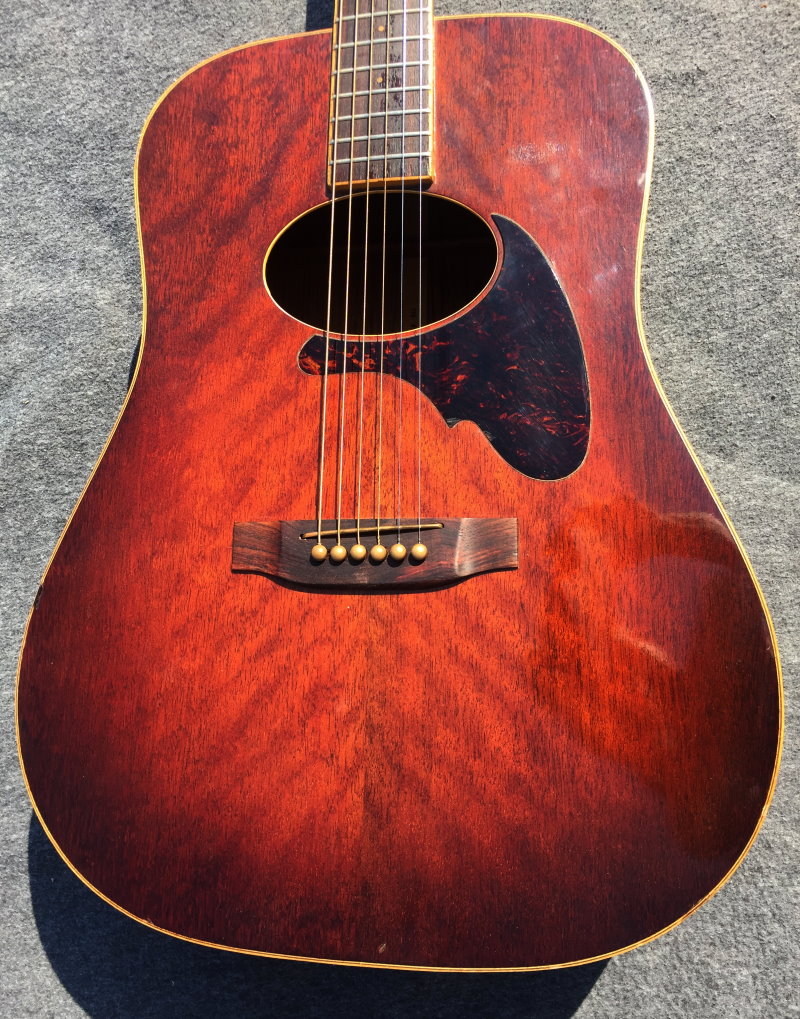


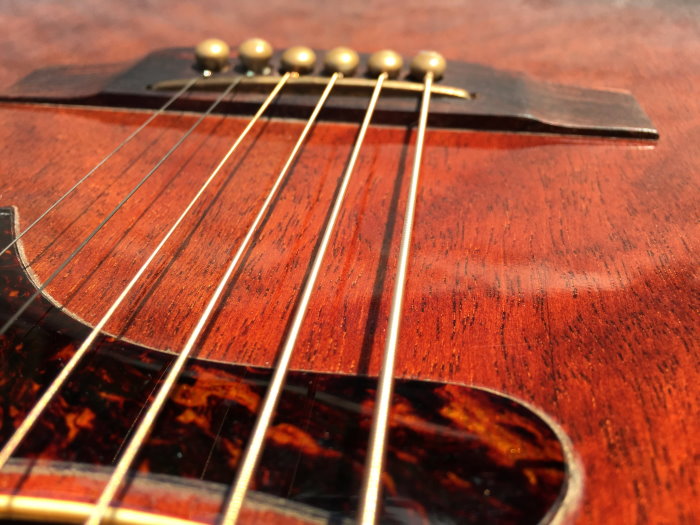


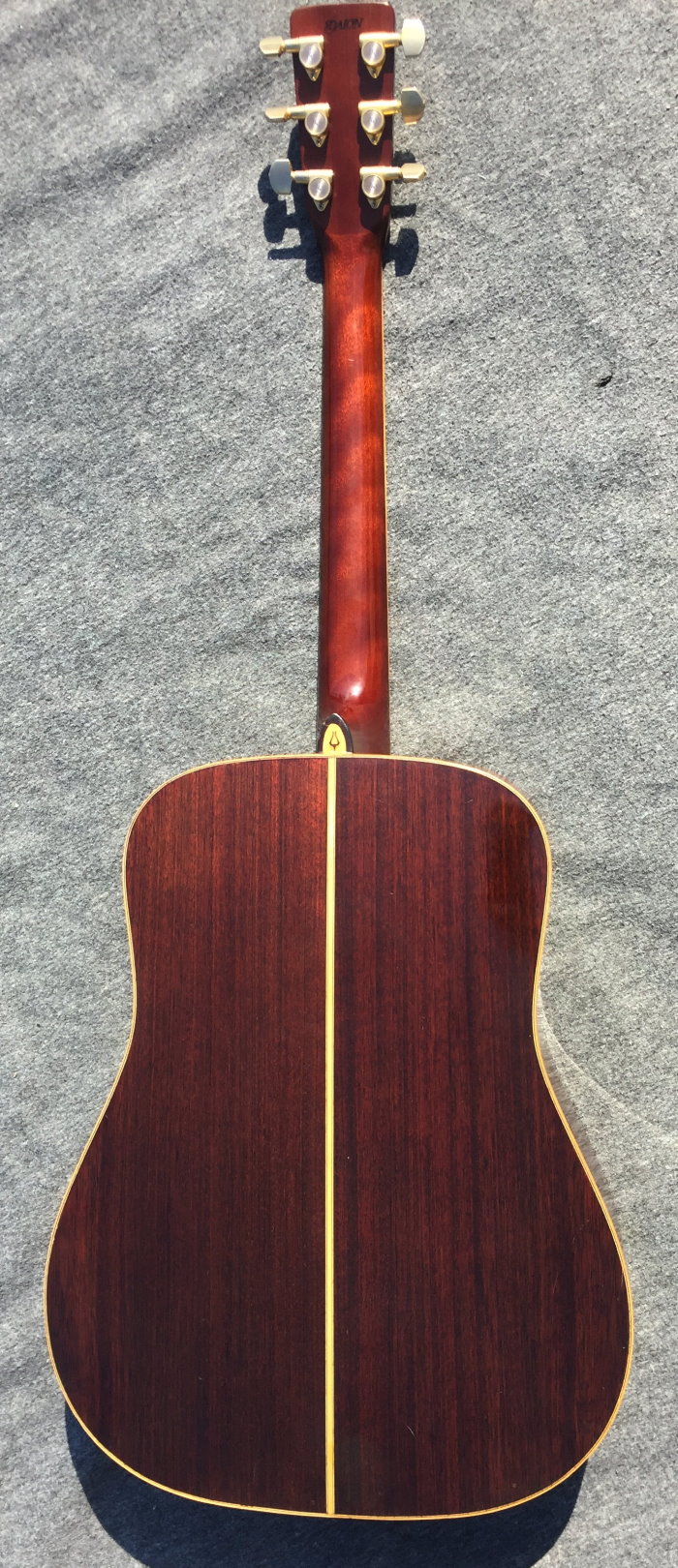
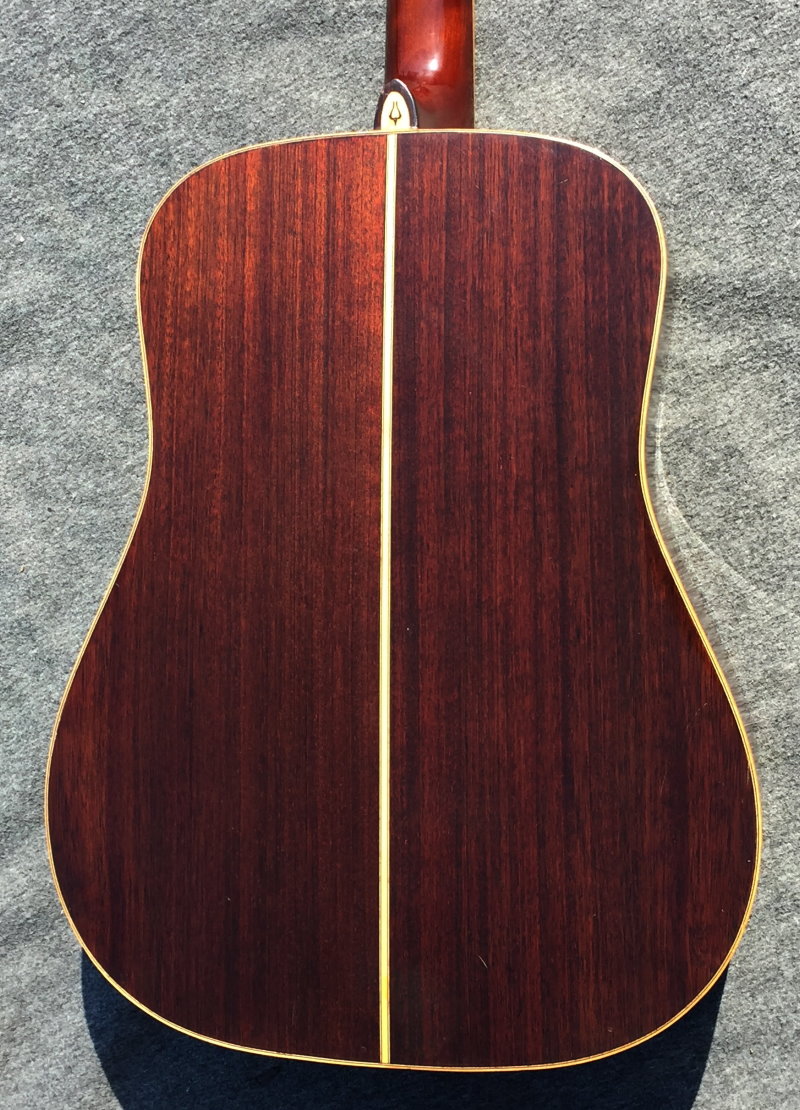

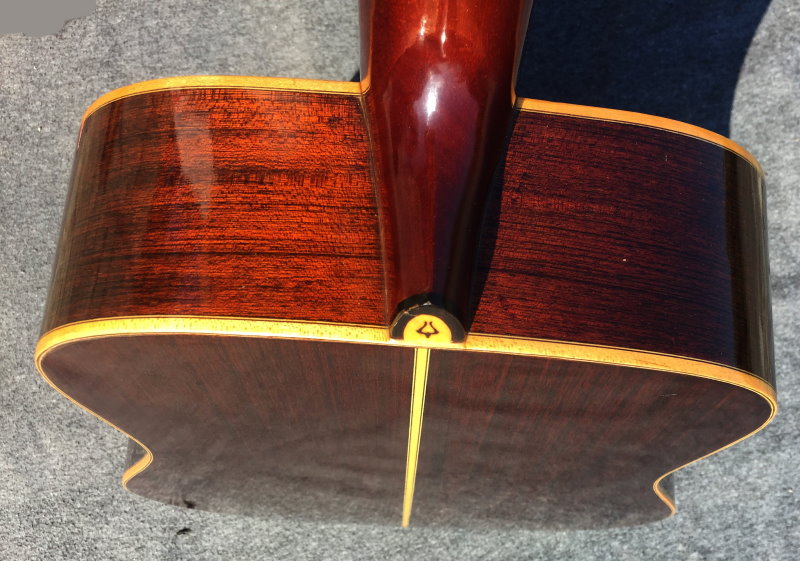
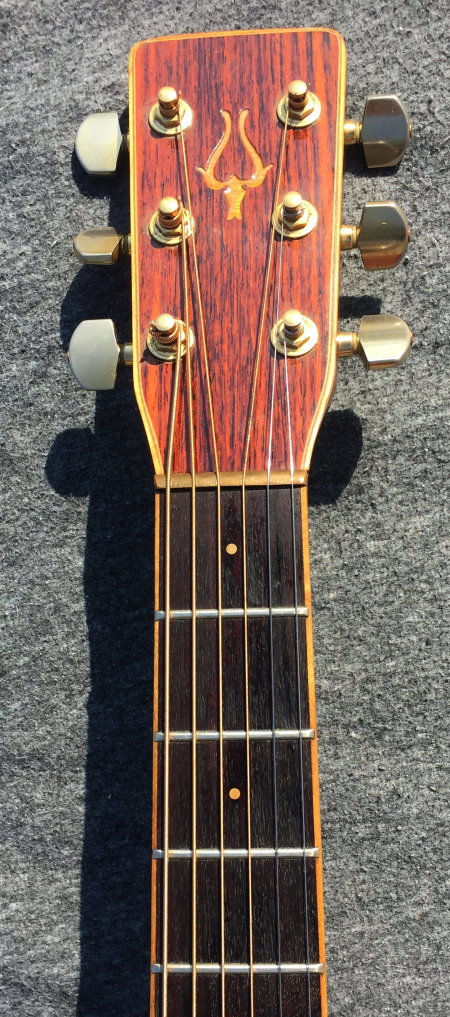
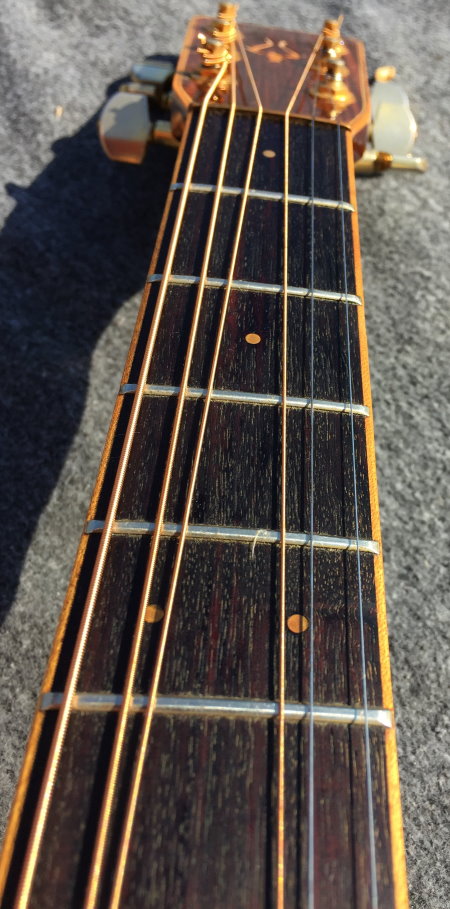

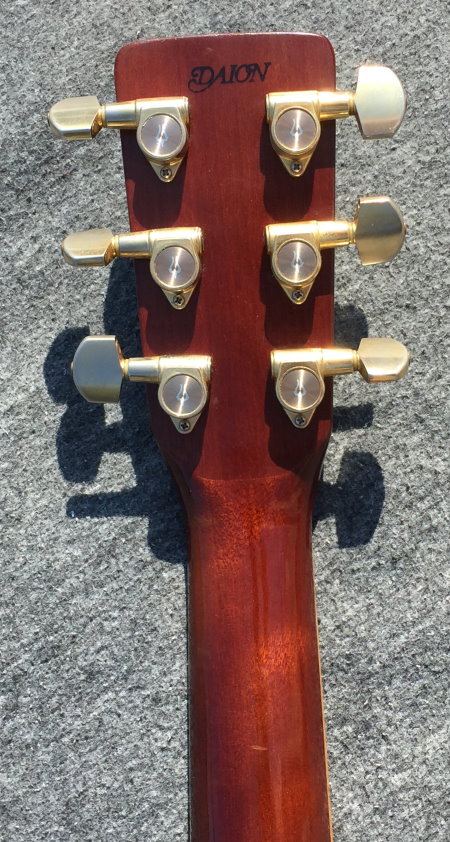
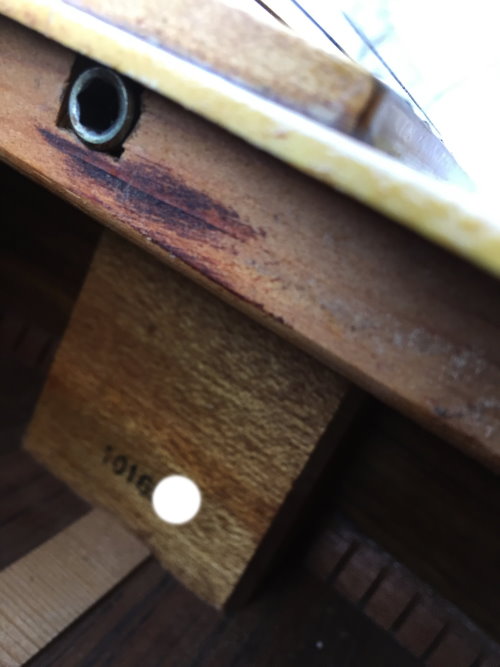
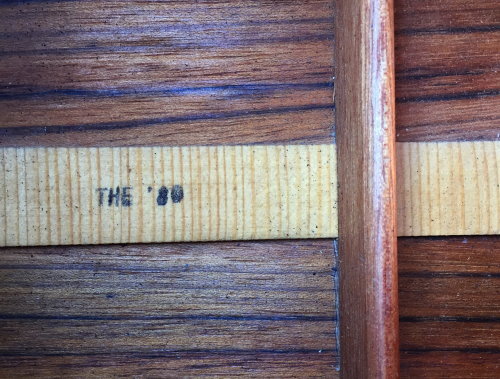
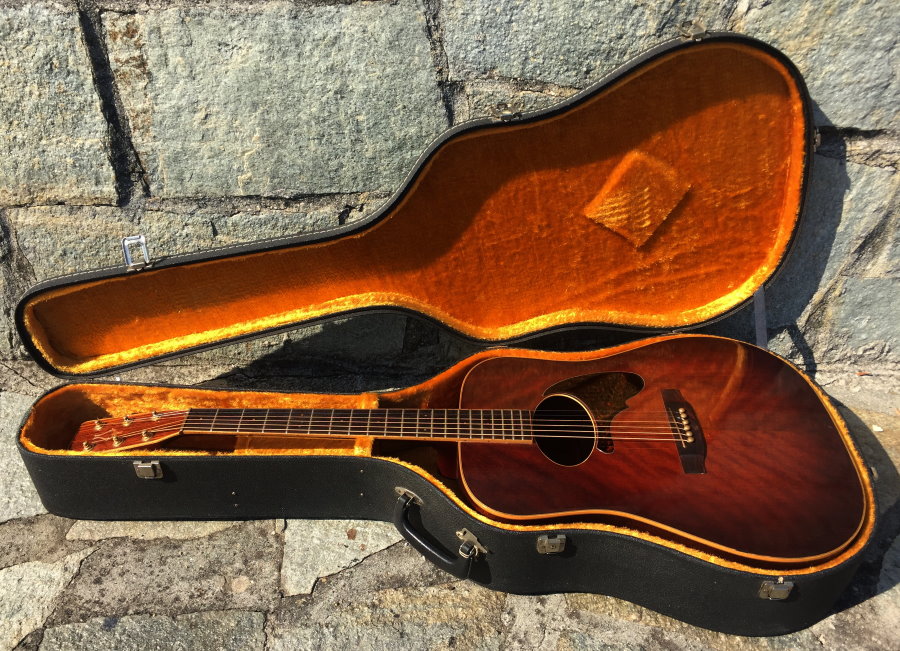
83' DAION THE 80 Sunburst Flammed Top, Very nice conditions, no wear as you see in photo! Hard Case. Code AC42
It has a original brass nut and brass bridge. Plays as well or better than any Martin, Taylor, or Gibson ! and for good reason these are absolutely great guitars. Considering their upward market trend, too, other people are figuring that out. The tone of this guitar exceeds its materials, it has the bright, jangly sparkle and definition you'd expect but also a nice, creamy, lower-mids accent. Nice low action, good frets. Ready to play
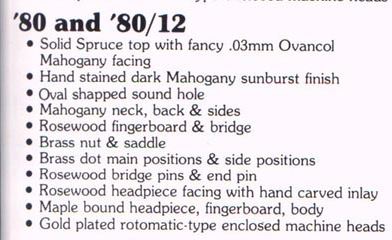
The complex story of Yamaki guitars is entwined with the
histories of a number of other Japanese companies. In the late 1940s, brothers
Yasuyuki and Kazuyuki Teradaira started working for Tatsuno Mokko, an
instrument-building firm that later split into two different companies, one of
which was called Hayashi Gakki. In 1954 Hayashi Gakki was bought out by Zenon, a
large music distributor. In 1962 Yasuyuki left Zenon to start an instrument
distributor he called Daion, which means “big sound” in Japanese. In 1967
Kazuyuki left Zenon to produce classical guitars under the name Yamaki, an
auspicious Japanese word meaning “happy trees on the mountain.” By the early
1970s, Kazuyuki expanded the Yamaki line to include a large number of
steel-string guitars, many of which were based on C.F. Martin and Co.’s designs
and were distributed exclusively through Daion. Along with Yamaki guitars, Daion
sold instruments from Shinano, Mitsura Tamura, Chaki, and Hamox, some of which
were built by Yamaki at various times, and Harptone guitars, which they imported
from the US.
Sometime in the late 1960s, Daion began exporting Yamaki guitars to America,
where they were well received. By the early 1980s, however, Daion felt that the
Yamaki Martin-style guitars were getting lost among similar instruments from
other Japanese builders like Takamine, Yasuma, and C.F. Mountain, so they
redesigned the entire acoustic line and started building acoustic-electrics and
solid-body electrics as well as oddities like double-neck acoustics. They
dropped the Yamaki name and rebranded their instruments as Daion guitars. Daion
began an extensive advertising campaign to introduce the new line around 1982,
but this was a time when musicians were more interested in the new MIDI-equipped
synthesizers than in guitars. In 1984 Daion stopped importing guitars to America
and soon went out of business. Yamaki, on the other hand, survived the downturn
of the 1980s and now makes parts for other Japanese guitar companies."
